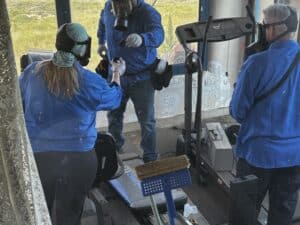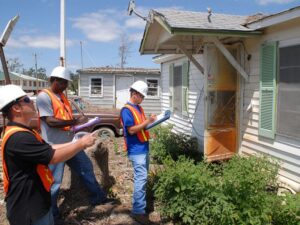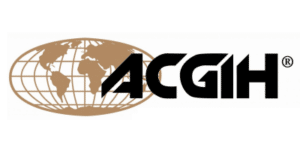Breathe Easy with an Indoor Air Quality Management Plan

An Indoor Air Quality (IAQ) Management plan monitors and maintains the safety of a building’s interior ambient air environment, mitigating risks of mold, moisture, aerosolized chemicals, airborne dust, nuisance odors and more for ongoing assurance of clean air.
IAQ management programs offer practical and cost-effective solutions to complicated indoor environmental quality (IEQ) issues. Dust, chemical agents, asbestos, and volatile organic compounds (VOCs), among other pollutants, are commonly found in office buildings, apartment complexes, community centers, educational institutions, and more.
Preventing and mitigating these issues starts with a comprehensive IAQ plan.
Common Contaminants of Indoor Air Quality
Construction, renovation, installation of new furniture or carpet other building products (drywall, paints and more), and the use of new chemical cleaning products are just a few potential activities that may negatively impact indoor air quality. These actions may generate aerosolized dust, VOCs, asbestos fibers, or other hazards. Some electronic appliances, such as printers and office equipment, release ozone in low concentrations that – if not properly ventilated – can become harmful or elicit adverse health effects.
Without routine interior building inspections, plumbing for kitchens, bathrooms, and emergency fire suppression sprinkler systems can leak, causing moisture intrusion and the potential for mold growth. Exterior building inspections include landscape sprinkler systems, windows, building sill plate foundations and roofs. Additionally, bathroom facilities, drains, and sinks can be a source of hydrogen sulfide – a sulfuric gas smelling of rotten eggs – that, at high concentrations, can negatively affect health.
During the COVID-19 pandemic, heightened numbers of employees are working from home, leading to vacant buildings that may not be properly monitored for potential IAQ issues. Building water systems that are left stagnant for extended periods have the potential to accumulate Legionella bacteria, which may cause mild to severe respiratory illness in susceptible individuals that are exposed upon the reoccupation of buildings.
Another potential source of poor IAQ during building closures include HVAC air filtration systems that are in need of maintenance or repair. Air filters should be replaced and upgraded to a higher filtration efficiency in order to mitigate contaminated indoor air. Settled dust in HVAC ductwork or above ceiling plenum systems when back in operation could impact indoor air quality. Indoor air may also be impacted by chemical contaminants from cleaning products, or improperly stored chemicals.
A comprehensive IAQ management plan will include inspection of HVAC systems, airflow, building water systems, and other building components and factors that can impact the indoor environment. For best results, property managers will want to perform monthly to quarterly IAQ assessments.
Maintaining Clean Air for Public Venues
Among other recent projects, Omega has worked to design customized IAQ plans for public performing arts venues to ensure the safety of employees, patrons and performers in 2021.
In addition to COVID-19 disinfection protocols and IAQ management, many facilities also require a plan for monitoring mold and moisture content.
Environmental Experts Can Monitor Ongoing Air Quality
At Omega Environmental, our team of industry veteran scientists, toxicologists, industrial hygienists, and environmental consultants work together to identify and mitigate hazards. We utilize both direct read instrumentation and independent, accredited laboratories to provide accurate results to clients on time-sensitive projects.
Our IAQ Management plan provides ongoing services for:
- Sick building syndrome evaluations
- Microbial sampling and analysis
- Water damage and microbial evaluations
- Mold remediation project design and oversight
- Dust mitigation plans
- Proactive IEQ management plans
- Customized IEQ training programs
- Operations and Maintenance
- Sewer Gas and other nuisance odor monitoring
- Traditional industrial hygiene investigations
Building air quality is critical to the health and safety of occupants; with an IAQ management plan, building owners can mitigate potential risks associated with the buildup of toxins indoors. A comprehensive IAQ management plan will include best practices for existing in-house janitorial or maintenance personnel. The program will also develop a plan to manage processes with potentially significant pollution sources.
Omega’s IAQ management plan will include IAQ checklists for building staff and provide documentation for recordkeeping. If your occupants are returning to work amid the COVID-19 pandemic, a plan for maintaining indoor air quality will assist in monitoring and preventing viral spread, as well as restoring confidence in a safe return to the office.
To learn more about our IAQ management or ambient air monitoring services, contact us through the link below.










